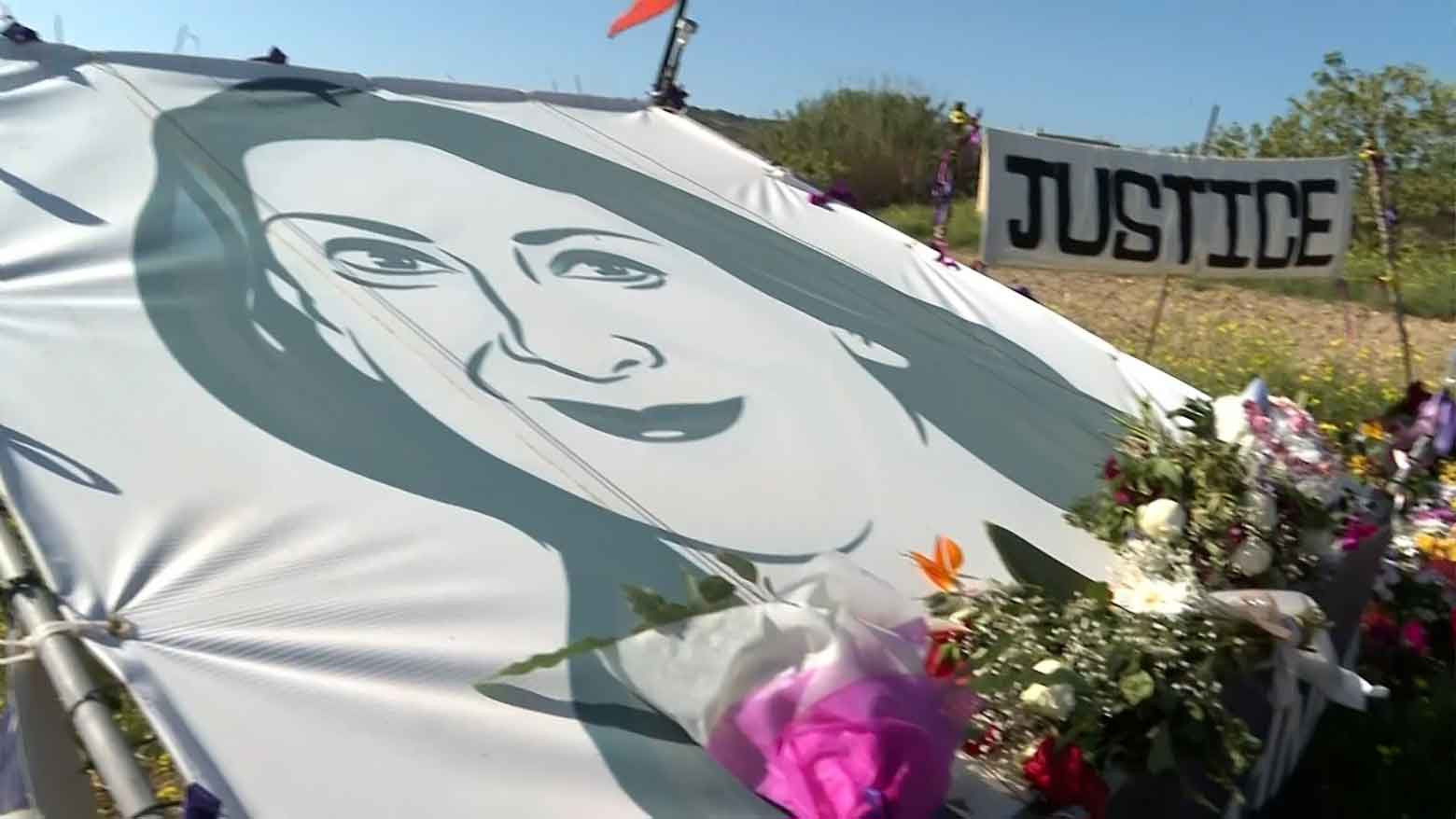Corinne Vella wasn't expecting a large turnout for her sister’s vigil. After all, it had been four years since the assassination and, she says, “people get tired of fighting for justice. You would expect people to get caught up in the initial trauma and then go about their own lives.”
But on an evening on October 16, about 1,000 people gathered in Valletta, the capital of Malta, to honor Daphne Caruana Galizia, an investigative journalist known for her work exposing political corruption. She was killed by a car bomb in 2017.
“It was overwhelming to see so many people are still dedicated to the cause,” says Vella, who has been campaigning for justice for her sister. Several people have been indicted for the killing, including an energy tycoon with close ties to the government of the time. The investigation reached the highest levels of power in Malta and led to the resignation of then prime minister Joseph Muscat. But only one person has been convicted so far and the full truth of the killing is yet to emerge.
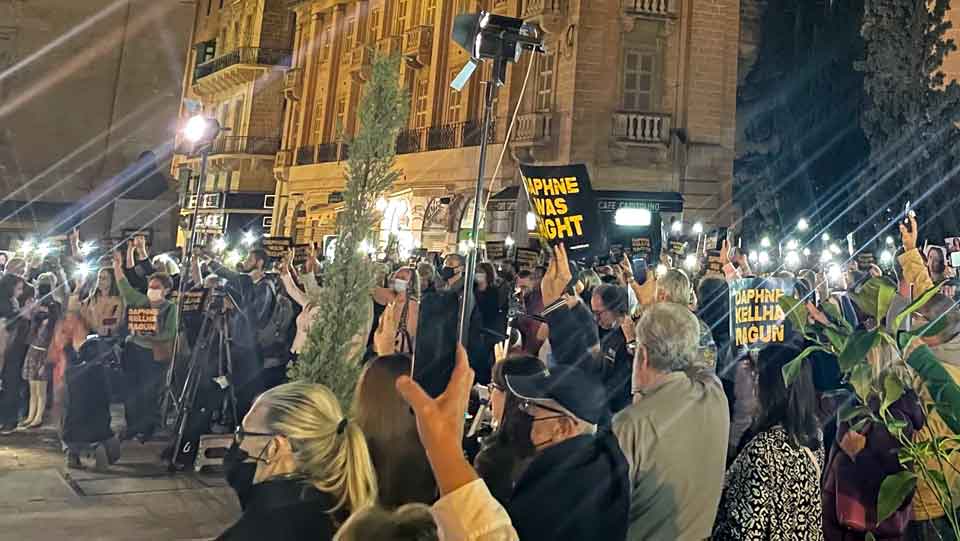
Vella is Caruana Galizia’s younger sister. She wants to see not only the perpetrators but also the people behind the killing brought to justice: “We know for certain that Daphne's murder was related to her work and a lot of her work involves uncovering political corruption. There is no prosecution for political corruption until now. We want to see that happen.”
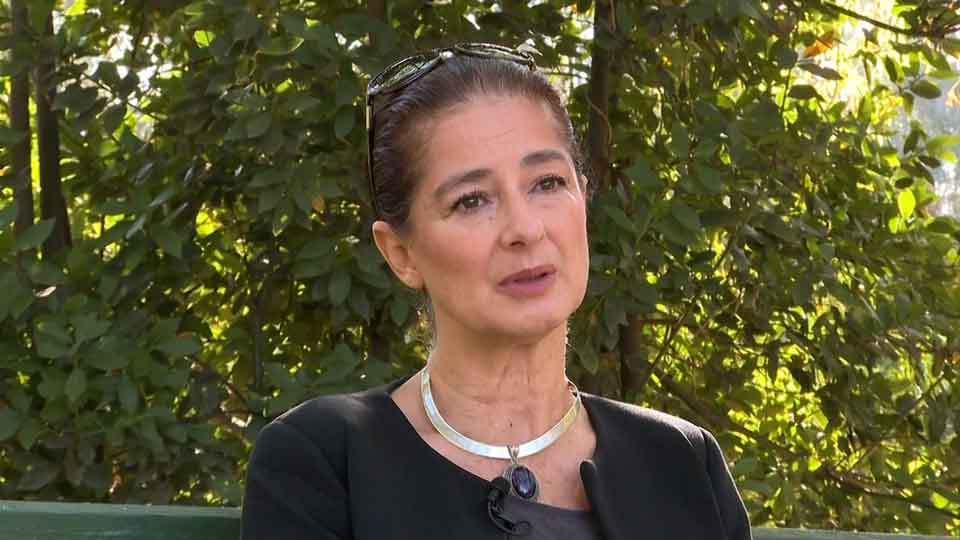
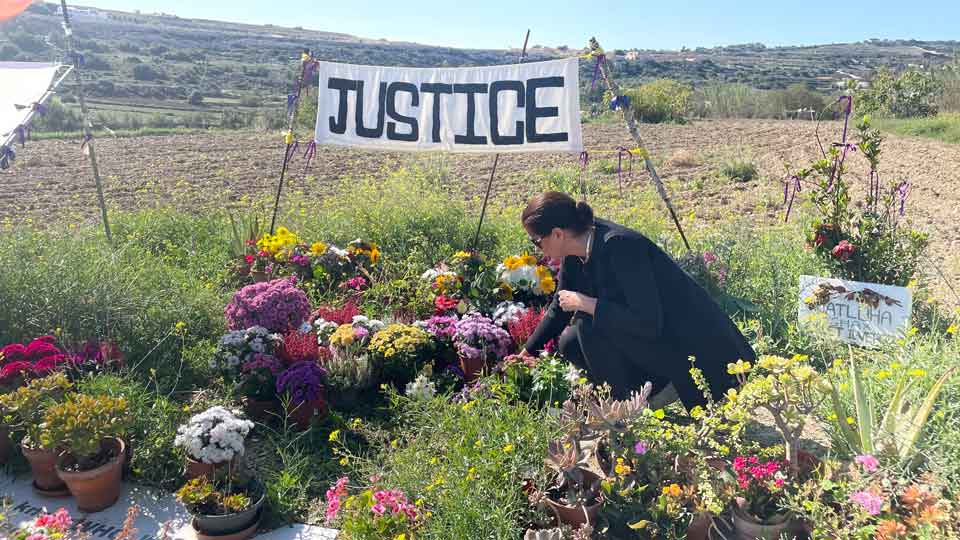
Journalist fears for safety, relocates
Despite the indictments and the change of power in Malta, journalists still face intimidation. Manuel Delia respected Caruana Galizia’s work and continues investigating political corruption, but he faced so much harassment that he ended up fleeing to Germany. Even in his new home, he says he gets calls from someone who has cloned Caruana Galizia's phone number and also from other numbers, demanding that he stop writing.
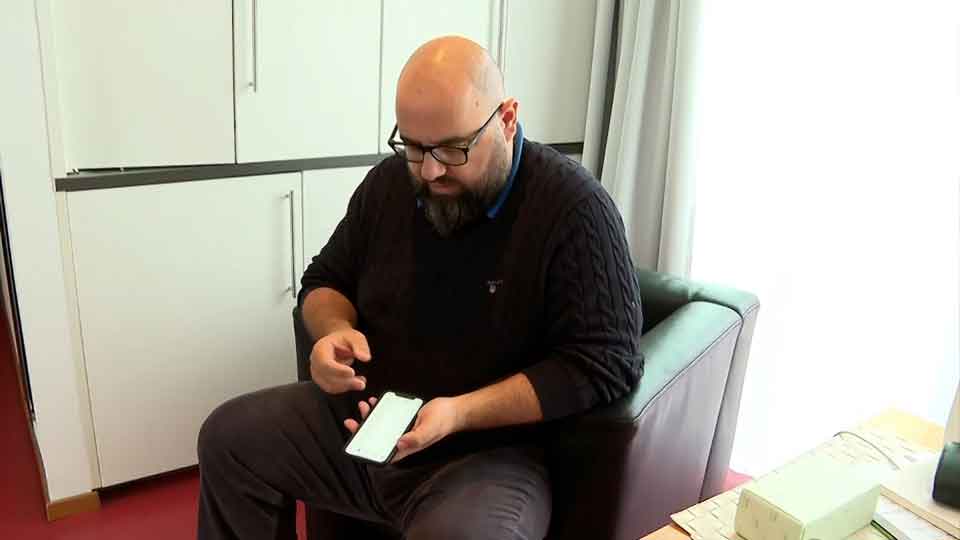
Delia has sought help from the European Centre for Press and Media Freedom (ECPMF). The non-profit organization, founded in Leipzig, Germany, provides residences and bases for at-risk journalists from across Europe. The organization also trains journalists on how to use encrypted communication to continue investigative reporting safely.
Delia lives in one of the ECPMF residences, which he says offers him “the advantage of distance and safety.” He also receives therapy and security training from the group.
Lutz Kinkel, managing director of ECPMF, says the situation is getting worse for journalists in Europe. He blames authoritarian leaders as well as the rise of misinformation on social media. He says his organization, founded in 2015, is growing more significant by the year. “Our support enables and empowers journalists to continue their work,” he says. “That’s important because journalistic work is important for a functioning democracy.”
Amid danger, some hope
The dangers are not limited to Malta or authoritarian states. In the Netherlands, a prominent journalist investigating organized crime was shot dead in July. In Slovakia, investigative journalist Jan Kuciak and his fiancée Martina Kusnirova were gunned down in their home in 2018.
France-based Reporters Without Borders has been advocating for a free press since 1985. Current Secretary-General Christophe Deloire says the situation in Europe is deteriorating.
Deloire says the assassination of Caruana Galizia was “a moment of awareness” across the European Union that investigative journalists could be targeted on European soil. He says what her death appears to have in common with subsequent assassinations of journalists is that it followed an undermining of the media by those in power.
“There is first a weakening of the media and then the attackers take advantage,” he says.
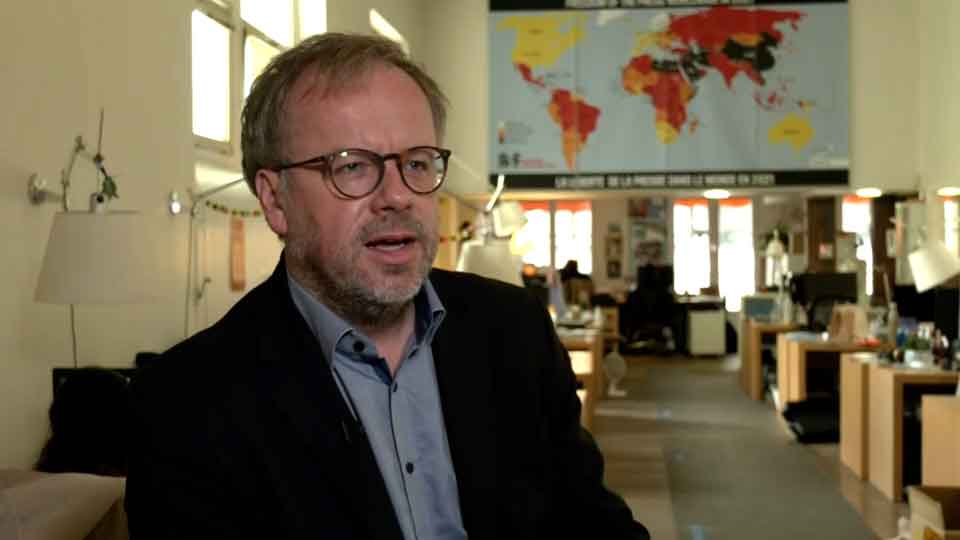
Deloire says the future of journalism is uncertain, but there are reasons to be optimistic. He says this year’s Nobel Peace Prize, awarded to journalists Maria Ressa and Dmitry Muratov for their work holding authoritarian leaders to account, “comes at a crucial time.”
Vella agrees. “With that prize, I have a feeling that it sends such a strong signal that it’s shored up the confidence of people who work in the field,” she says. “It put a light where it should go. Journalism shines a light in the darkness.”
